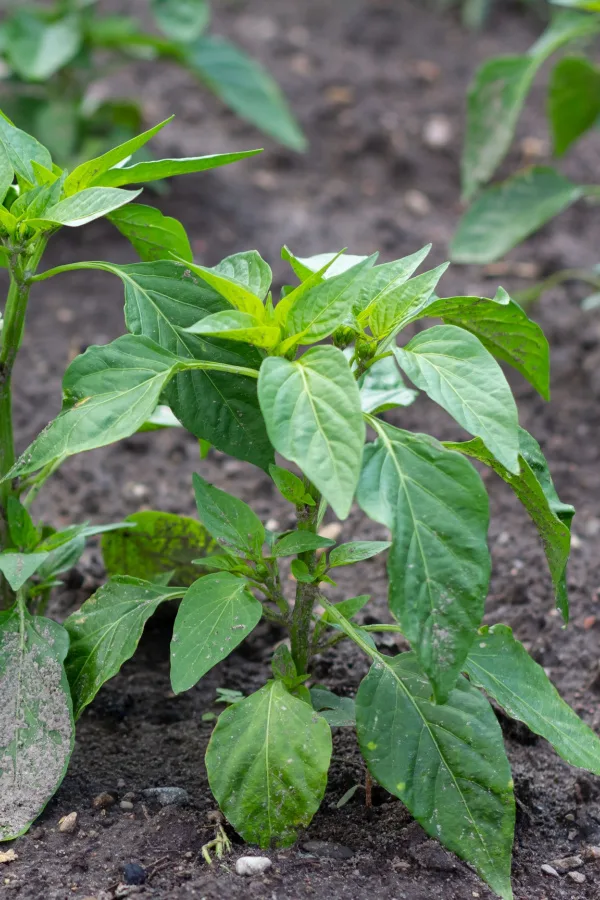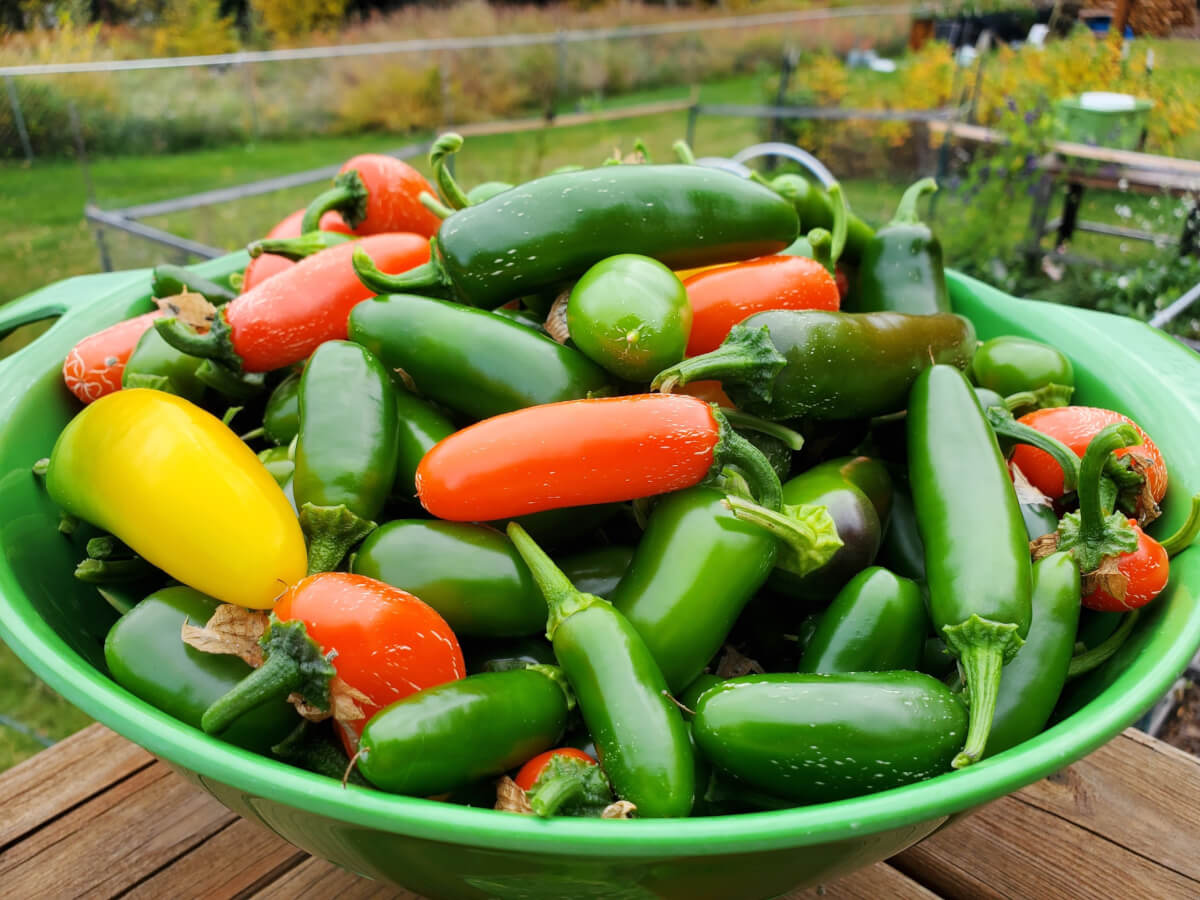Check Out the Best Fertilizers for Peppers and Enhance Your Yard's Return
Check Out the Best Fertilizers for Peppers and Enhance Your Yard's Return
Blog Article
The Conveniences and Techniques of Using Plant Foods for Peppers in Your Garden
When it pertains to cultivating an effective pepper garden, the role of plant foods can not be overlooked. The benefits of using fertilizers for peppers expand past plain plant development; they play an essential duty in improving fruit production and total plant health and wellness. The globe of fertilizers can be frustrating, with countless options offered, each claiming to be the ideal. Comprehending the particular demands of pepper plants and choosing the right plant food can be a game-changer in your gardening trip. By discovering the methods of correct fertilizer application and establishing a timetable tailored to your pepper plants, you can open their complete possibility. Join us as we reveal the complexities of feeding peppers efficiently and efficiently, making sure a plentiful harvest and growing yard.
Importance of Fertilizers for Peppers
Fertilizers play a critical role in making sure the optimal growth and efficiency of pepper plants in a garden setup. The main nutrients needed by pepper plants are phosphorus, nitrogen, and potassium.
When peppers do not have these important nutrients, they may display stunted growth, yellowing fallen leaves, minimized flowering, and inadequate fruit collection. By providing the appropriate plant foods in the appropriate quantities, garden enthusiasts can resolve these deficiencies and advertise healthy and balanced plant development. Furthermore, plant foods aid pepper plants endure ecological stress factors such as extreme temperatures, pests, and conditions, permitting them to concentrate their energy on development and fruit manufacturing.
Picking the ideal plant food formulation, whether natural or artificial, and following correct application strategies are vital factors in taking full advantage of the benefits of plant foods for pepper plants in a garden setup. Routine soil testing can also aid identify any nutrient discrepancies and guide garden enthusiasts in developing a personalized fertilization plan customized to the specific needs of their pepper plants.
Picking the Right Plant Food
Selecting the ideal fertilizer for pepper plants is crucial for ensuring their optimal growth and performance in a garden setting. When selecting a fertilizer for peppers, it is crucial to think about the specific nutrient needs of these plants. Peppers are heavy feeders, especially requiring sufficient amounts of nitrogen, phosphorus, and potassium. Therefore, a plant food with a balanced NPK proportion, such as 10-10-10 or 20-20-20, can be suitable for peppers.

Prior to applying any kind of plant food, it is important to carry out a dirt examination to establish the existing nutrient levels in the dirt. This info can guide you in picking the right plant food and producing a tailored fertilizing plan for your pepper plants, advertising healthy and balanced growth and abundant returns.
Application Techniques for Maximum Results
To attain optimal growth and productivity link for pepper plants in your yard, what secret application strategies can be used for maximum results? When applying fertilizers to pepper plants, it is important to comply with specific strategies to make sure that the nutrients are effectively soaked up and made use of by see page the plants. One important method is to apply the plant food uniformly around the base of the plants, making sure that it is not focused in one area. This aids to stop origin melt and enables consistent nutrient uptake.
One more essential application technique is to sprinkle the plants extensively after using the plant food. This assists to liquify the nutrients and carry them down to the roots where they are required for growth. Furthermore, it is advised to apply fertilizers during the cooler components of the day, such as morning or late night, to prevent dissipation and maximize absorption.
In addition, routinely keeping an eye on the plants for any indications of nutrient shortage or unwanted can aid in readjusting the plant food application accordingly. By utilizing these essential application techniques, you can ensure that your pepper plants get the necessary nutrients for healthy and balanced growth and bountiful returns.
Fertilizer Schedule for Pepper Plant Kingdoms
When should pepper plants be fed to ensure ideal development and efficiency in your garden? Establishing a well-structured fertilizer timetable is important for the healthy and balanced growth of pepper plants - best fertilizers for peppers. Peppers have specific dietary demands that vary throughout their growth stages

As the pepper plants begin blooming, go now switch to a phosphorus-heavy fertilizer to advertise durable blossom and fruit development. Potassium-rich fertilizers ought to be presented throughout the fruiting phase to enhance fruit quality and yield.
Throughout the growing period, monitor the plants for any kind of indicators of nutrient shortages and change the fertilizer timetable appropriately. Bear in mind to water the plants deeply after each fertilizing to help in nutrient absorption. By adhering to a well-tailored and constant plant food routine, you can make certain energetic development and abundant harvests from your pepper plants.

Tips for Fertilizing Peppers Efficiently
One key pointer is to perform a soil examination before using any type of fertilizers to determine the existing nutrient degrees. It is recommended to utilize a balanced fertilizer with a proportion such as 10-10-10 or 20-20-20 to make sure peppers get a mix of vital nutrients. Using plant foods in the ideal quantity and at the ideal time is critical.
Final Thought
Finally, plant foods play a vital duty in the development and growth of pepper plants in your yard. By selecting the appropriate fertilizer and applying it properly, you can ensure your peppers get the essential nutrients for optimal development. best fertilizers for peppers. Following a regular plant food routine and applying efficient strategies will aid take full advantage of the advantages of plant foods for your pepper plants, resulting in productive and healthy plants
The advantages of making use of fertilizers for peppers expand beyond simple plant development; they play an important function in enhancing fruit production and overall plant health.Fertilizers play an important duty in ensuring the optimum development and efficiency of pepper plants in a yard setup. When choosing a plant food for peppers, it is vital to think about the certain nutrient needs of these plants. When applying plant foods to pepper plants, it is critical to comply with certain methods to make sure that the nutrients are effectively taken in and made use of by the plants. Complying with a regular fertilizer schedule and applying efficient techniques will certainly help maximize the advantages of plant foods for your pepper plants, resulting in healthy and efficient crops.
Report this page